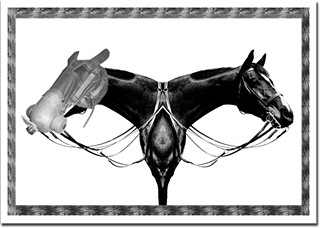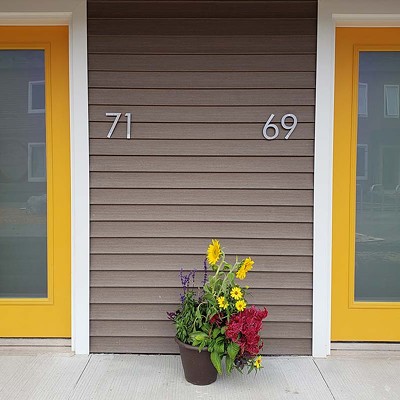The horses at the halifax Junior Bengal Lancers on Bell Road have been coughing for five years, but only now are doctors and management zeroing in on a solution.
Jill Barker, stable manager for the Lancers, declined to comment in depth. "There really is no story---we're not moving them, they're being treated and we're dealing with the building."
Annie, a Dalhousie student who's been riding at the stables for "at least 11 years" and doesn't want her last name used, says when a horse coughs while you're riding, it can "shift you forward"---sometimes off the saddle. A horse will often drop its head when it coughs, which can unbalance a rider.
The coughing recently became so severe that management considered moving the horses to a rented facility in Mount Uniacke.
But that move was rejected as too inconvenient for the riders. "As most of you know by now, we have an ongoing problem in the stables with horses coughing," explains an unnamed author in a December 17 newsletter on the Lancers' website (bengallancers.com). "We have all been frightened at the thought of Lancers, even temporarily, moving out of the city. I would ask that all riders take a few minutes to think about what their lives would have been like if Lancers had not been so readily available to them."
Annie agrees with the sentiment. She says most of the student riders drive, or have their parents drive them, to the Bell Road stables, but the trip to Mount Uniacke is long and inconvenient. "I drive, but it is pretty far out of the way."
Though the horses will remain in the sickly stables, management is taking concrete steps to solve the problem.
"A lot of people have agonized for many hours and a lot of attempts at finding the correct professionals who have the expertise to diagnose and to cure the situation have taken place. All of these attempts have had a price tag attached," reads the newsletter.
The issue arose in 2003, when the Lancers started renovations on their Bell Road stables, built in 1908 to house police and fire horses and fire equipment. As contractors rebuilt the stables on the north side of the barn, the horses developed the cough. Since then, changes to the ventilation system and leaving the stable windows open lessened the problem. But still, the illness lingered.
A drug company specialist ruled out infectious diseases last year, but he couldn't explain why the horses were coughing.
Local and out-of-town experts---including Paul Kendall, the stable's veterinarian, and several American doctors---diagnosed the horses with inflammatory airway disease.
Kendall did not return calls for comment.
The specialists decided to leave the horses on Bell Road to allow them to investigate the problem in its normal environment.
"It's basically bronchitis"---but a non-infectious, non-bacterial version, says Ed Robinson, who was one of the specialists.
Robinson, a professor of physiology from Michigan State University who specializes in equine lung disorders, was flown in by the Lancers and looked at the horses and their stables January 5.
He says that horses are genetically disposed to coughing---or heaves, as equine specialists call it. He says high levels of ammonia---a byproduct of the horses' urine---and dust, can aggravate the lung linings of horses, and that deficiencies in the stable's new forced-air ventilation system are allowing these things to build up.
"They've renovated a very old building," says Robinson. "Forced air systems are complicated---you have to make sure that all the material is moving the right way."
He says some horses are more susceptible to the contaminants than others. "It's like smoking in humans---some humans are strongly affected by it, and others aren't," says Robinson."
Robinson hasn't given his report to the Bengal Lancers yet, but says the horses should be able to stay on Bell Road---he doesn't think moving them is essential yet. The inflammatory disease will likely clear up if the ventilation system can be adjusted to remove the ammonia and dust. And in the meantime, the stable's windows will stay open, despite sometimes chilly weather.
"The horses are very well cared for," he says. "And they shouldn't have any long-term negative effects."












